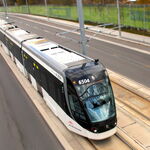mpd618
Active Member
The line is about more than just serving the most people. A lot of tech companies out in Waterloo Region are demanding some form of higher order transit between it and Toronto before they devote resources to building offices there, or even keeping existing ones.
How necessary is the HSR to KW anyway? ... How many people are there doing this that would not be served by RER? Is that number enough to justify another service?
BMO is right - this isn't even about serving an existing ridership demand so much as creating it. The argument has been about the huge value to Ontario's economy of connecting a major engineering hub and innovation generator (Kitchener-Waterloo) to a major business and financial centre (Toronto) with fast, shiny transit. It would dramatically improve Ontario's competitiveness with places like New York and Silicon Valley in the decision to set up business in Ontario at all.




